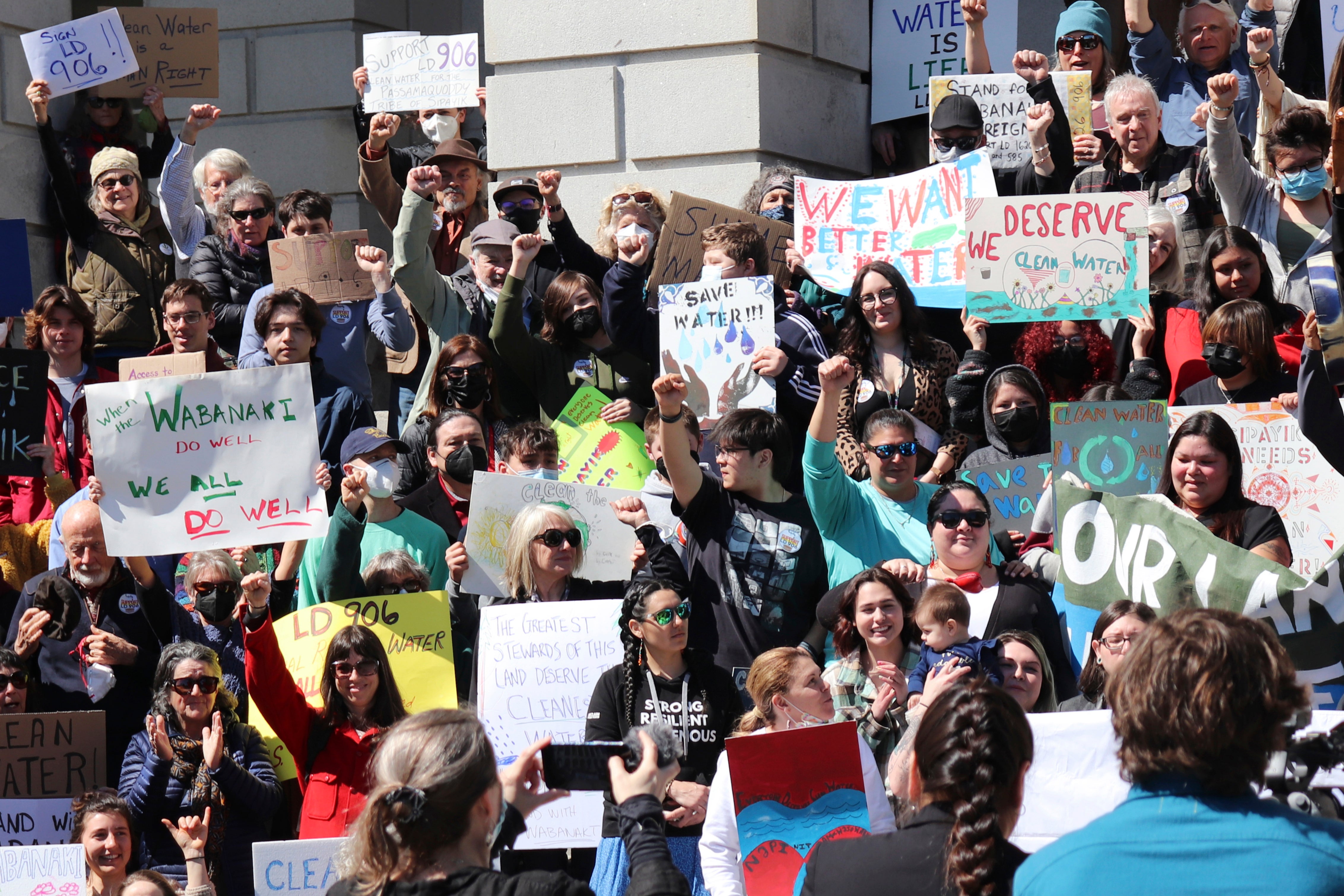How we’re building power for Native People at the ballot box
As the US marks Indigenous Peoples Day, Native Americans are working to make sure our voices are heard at the polls


Today, on Indigenous Peoples Day and every other day, Native peoples across Turtle Island are flourishing – resistant and resilient to the ways society attempts to silence us.
Native peoples are leading, organizing, creating, educating, innovating, advocating, and thriving – on Capitol Hill, in Hollywood, on reservations, rural and urban communities. We’ve made incredible strides in representation, breaking through industries like media and entertainment that have long perpetuated our erasure. We are championing narrative disrupting Native-created content like Reservation Dogs, Rutherford Falls, and Prey.
Native peoples broke records in 2020 voting in unprecedented numbers, tipping the scales on numerous generation-defining elections, and made history with the first and the most Native peoples elected into state legislatures, Congress, and the President’s Cabinet. Today, on Indigenous Peoples Day, and at the polls in November, we are building power in all sectors of society and in all parts of the country.
For too long, despite our major contributions to this country, we have been rendered invisible or misrepresented in popular culture and media. The offensive, stereotypical Native characters we see on our screens, the grossly derogatory Native mascots, and the toxic misrepresentations of Native peoples in the K-12 education system are all modern forms of racism against Native peoples.
Society has always made decisions about and for Native peoples without our input, but Native peoples are no longer tolerating or settling for erasure. We are reclaiming our power and voicing our concerns on key issues that all Americans care about like climate change, healthcare, systemic racism, inflation, cost of living and other kitchen table issues through our votes. Native peoples want and need to be heard and represented at all levels of government.
Voting is the cornerstone of American democracy. Voting shifts the power back into the hands of everyday people, allowing us to elect leaders who truly reflect us and our voices, experiences, concerns, hopes, dreams. By voting, we’re disrupting the status quo. This is why Native, Black, and Brown communities didn’t have the right to vote until nearly 60 years ago. It’s also why in 2022, we’re continuing to see the disenfranchisement and voter suppression of communities of color. Voting is power, and one thing is certain – the power of the Native vote cannot and should not be underestimated.
The Indian Citizenship Act of 1924 “granted” Native peoples the right to vote on paper, but certainly not in practice. Strategic decisions by state and local governments, like refusing to put polling places near tribal communities and reservations, and requiring Native peoples to pass literacy tests or pay poll taxes, have created barriers to access and prevented many Native peoples from voting. It wasn’t until the 1960s that Native peoples were guaranteed the right to vote in every state.
But the fight for Native voting rights is not a distant history, it is happening right now. Native peoples continue to face more barriers to vote than any other community of color and regardless of these hurdles, Native voters were instrumental to the outcome of the 2020 election – shattering the false narrative that the Native vote is too small or insignificant. Our 2022 Indigenous Futures Survey of nearly 5,000 Native peoples from 49 states, found that 84.7% participants voted in the 2020 election and 79.7% plan to vote in the 2022 midterm elections. All candidates in every party need to pay attention to the Native voting bloc.
Elections are now increasingly won on razor thin margins and in key elections – every vote matters, and dismantling the barriers to vote is all the more crucial. Many Tribal reservations don’t have traditional street addresses recognized by the USPS, which can cause problems obtaining the proper photo ID to vote in some states as Tribal IDs are not an acceptable form of identification. Others have to travel far distances to be able to cast their ballots. These laws impact Native people living on reservations where the access to polling and transportation make it disproportionately difficult to vote.
Ahead of the midterm elections, we need to mobilize and show up in full force, and that means getting creative with the ways that we’re reaching our communities. As part of our 2022 Natives Vote campaign with Native Organizers Alliance, we’re leveraging digital and grassroots organizing to get Native peoples to the polls and working with renowned Native artists Gregg Deal (Pyramid Lake Paiute) and Ernesto Yerena (Yaqui/Xicana) to incorporate action into art.
Through a virtual town hall, campaigns to skate or ride horseback to the polls, our community is thinking about innovative ways to meet Native peoples where they are.
This is only the second federally recognized Indigenous Peoples Day, serving as a reminder of how hard the Native community has had to fight for visibility in this country. Our progress has been immense – with more Native representation in government than ever – but we still have a long way to go.
Secretary Deb Haaland, Rep. Sharice Davids, Rep. Mary Peltola, Lieutenant Governor Peggy Flanagan, Rep. Ruth Ann Buffalo, U.S. Treasurer Lynn Malerba, and so many other Native women are breaking the glass ceiling for us, for our children, and for future generations to come. It’s up to us to vote for more people who look like us and will fight for our rights, our land, and our sovereignty.




Join our commenting forum
Join thought-provoking conversations, follow other Independent readers and see their replies